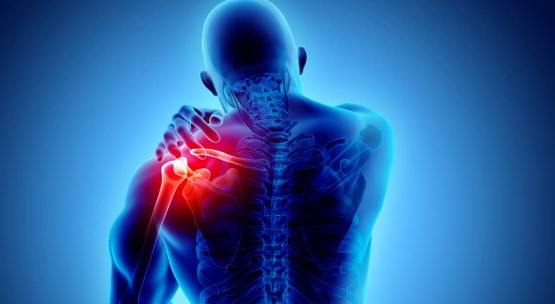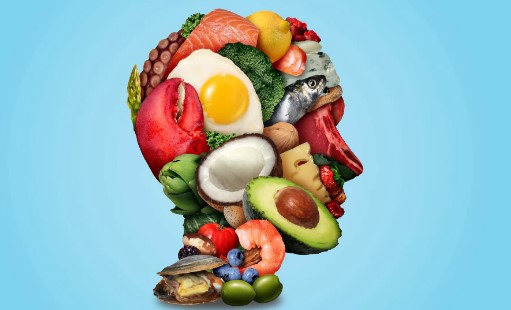
The Vital Role of Diet and Nutrition in Managing Pain
Pain is an intricate and distressing experience that affects millions of individuals worldwide, often impeding their quality of life and daily functioning. While traditional approaches like medication and therapy are commonly utilized for pain management, emerging research sheds light on the significant impact of diet and nutrition in mitigating pain. In this comprehensive guide, we delve into the intricate relationship between diet, nutrition, and managing pain, drawing insights from the expertise of Florida Medical Pain Management.
Understanding Pain
Pain is a complex phenomenon influenced by various factors, including physiological, psychological, and environmental elements. It can manifest in different forms, ranging from acute to chronic, and may result from injury, illness, or underlying medical conditions. Chronic pain, in particular, poses a significant challenge, often necessitating a multidisciplinary approach for effective management.
The Role of Diet
Diet plays a pivotal role in overall health and well-being, and its influence extends to the management of pain. The foods we consume can either exacerbate or alleviate pain, depending on their nutritional composition and impact on inflammatory processes within the body. Florida Medical Pain Management emphasizes the importance of adopting a balanced and anti-inflammatory diet to alleviate pain symptoms and enhance overall health

SCHEDULE A CONSULTATION
Experience a pain-free life! Call us at (727) 268-0172
Anti-Inflammatory Foods
Certain foods possess anti-inflammatory properties that can help reduce pain and inflammation in the body. These include:
- Fatty Fish: Rich in omega-3 fatty acids, fatty fish like salmon, mackerel, and sardines have been shown to mitigate inflammation and alleviate pain associated with conditions such as arthritis and fibromyalgia.
- Fruits and Vegetables: Colorful fruits and vegetables are abundant in vitamins, minerals, and antioxidants, which combat inflammation and promote tissue repair. Incorporating a variety of fruits and vegetables into one’s diet can help reduce pain and improve overall well-being.
- Whole Grains: Whole grains like oats, quinoa, and brown rice are rich in fiber and nutrients that support digestive health and regulate inflammatory processes in the body.
- Nuts and Seeds: Nuts and seeds, such as almonds, walnuts, and flaxseeds, are excellent sources of healthy fats, fiber, and antioxidants that contribute to reduced inflammation and pain relief.
- Herbs and Spices: Turmeric, ginger, and garlic are renowned for their anti-inflammatory properties and have been used for centuries to alleviate pain and promote healing.
Nutritional Supplements
In addition to incorporating anti-inflammatory foods into one’s diet, nutritional supplements can provide targeted support for pain management. Florida Medical Pain Management recommends the following supplements:
- Omega-3 Fish Oil: Supplementing with omega-3 fish oil capsules can boost levels of essential fatty acids in the body, reducing inflammation and easing pain symptoms.
- Vitamin D: Adequate vitamin D levels are essential for bone health and immune function. Supplementing with vitamin D may help alleviate pain associated with conditions such as osteoarthritis and chronic back pain.
- Magnesium: Magnesium plays a crucial role in muscle function and relaxation. Supplementing with magnesium may help reduce muscle tension and alleviate pain in conditions like tension headaches and fibromyalgia.
- Glucosamine and Chondroitin: These supplements are commonly used to support joint health and reduce pain associated with osteoarthritis.
- Probiotics: Probiotic supplements support gut health and may help alleviate pain symptoms associated with gastrointestinal disorders.
Hydration and Pain Management
In addition to dietary considerations, hydration plays a critical role in pain management. Dehydration can exacerbate pain symptoms, as proper hydration is essential for maintaining optimal bodily functions and facilitating healing processes. Florida Medical Pain Management recommends drinking an adequate amount of water throughout the day to support overall health and pain management efforts.

SCHEDULE A CONSULTATION
Experience a pain-free life! Call us at (727) 268-0172
Conclusion
The relationship between diet, nutrition, and pain management is a multifaceted one, with profound implications for overall health and well-being. By adopting a balanced diet rich in anti-inflammatory foods, incorporating targeted nutritional supplements, and prioritizing hydration, individuals can take proactive steps toward managing pain and improving their quality of life. Florida Medical Pain Management remains committed to providing comprehensive care that integrates dietary and nutritional strategies to optimize pain management outcomes for patients.
Contact Us Today!
Are you ready to explore the powerful impact of diet and nutrition on managing pain? At Florida Medical Pain Management, we’re dedicated to helping you find effective and holistic solutions for your pain. Our expert team is here to guide you on your journey to better health and well-being. Contact us today to schedule your personalized consultation!
Our Treatment Services
Florida Medical Pain Management’s top priority is serving our patients’ needs and creating long-lasting relationships with them. Our treatments include:
- Treatment for Neuropathy
- Arthritis Management
- Back Pain Medication
- Chronic Pain Treatments
- Epidural Injection
- Regenerative Medicine
- Hip Pain Medication
- Ketamine Infusion Therapy
We want to help patients live more fulfilling and productive lives by effectively managing their pain. Florida Medical Pain Management also provides home therapy and many more. Click here to see our other services.















